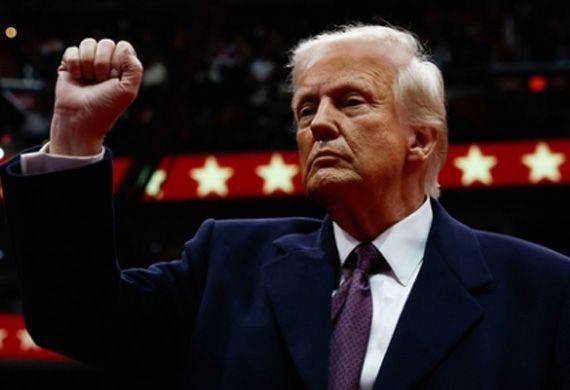Trump May Impose 25% Tariffs on Imported Cars, Chips, and Pharma
By Global Leaders Insights Team | Feb 19, 2025

HIGHLIGHTS:
- Trump announced potential tariffs on imported automobiles, semiconductor chips, and pharmaceuticals to boost U.S. manufacturing and counter unfair trade practices.
- Trump hinted that auto tariffs may take effect as early as April 2, aligning with cabinet trade reports.
- If implemented, these tariffs could disrupt global supply chains and escalate trade tensions worldwide.
On February 18, US President Donald Trump announced that he may impose 25% tariffs on imported automobiles, semiconductor chips, and pharmaceuticals to boost domestic manufacturing and address what Trump views as unfair trade practices. This move could significantly impact global trade.
Trump indicated that auto tariffs could be implemented as early as April 2, aligning with cabinet reports on trade measures. When asked about the proposed duties, he said, “I’ll probably announce it on April 2, but it will be around 25%,” according to Bloomberg.
Trump has consistently argued that American automakers are at a disadvantage in foreign markets. He said that while the duty on importing passenger cars into the U.S. is only 2.5%, European tariffs on American cars are 10%. But the U.S. has a 25% tariff on imported pickup trucks, and this will not change any time soon, except for those coming from Mexico and Canada to the advantage of domestic producers.
Trump Expands Tariffs to Pharmaceuticals and Semiconductor Chips
Trump announced that a 25% tariff will be introduced on pharmaceuticals and semiconductor chips in the initial phase, with a significant increase over the next year. While he did not specify an implementation date, he hinted that companies would have time to relocate manufacturing to the U.S. “When they establish plants or factories in the United States, there will be no tariff, so we want to give them some time,” he stated, as reported by Bloomberg.
Since taking office, Trump has already imposed a 10% tariff on all imports from China. A 25% duty on steel and aluminum imports is also to come into force on March 12, putting an end to the special exemptions from this duty that were earlier enjoyed by such key trading partners as Mexico, Canada, and the European Union.
Trump's recent announcement regarding auto tariffs is exactly the same as that which he did in 2018-19 when he initiated a national security investigation that found that auto imports weakened the U.S. industrial base. Previously, he abandoned this idea but now his administration might bring it back to the table. If implemented, these tariffs will disrupt global supply chains and also heighten trade tensions.
.jpg)



